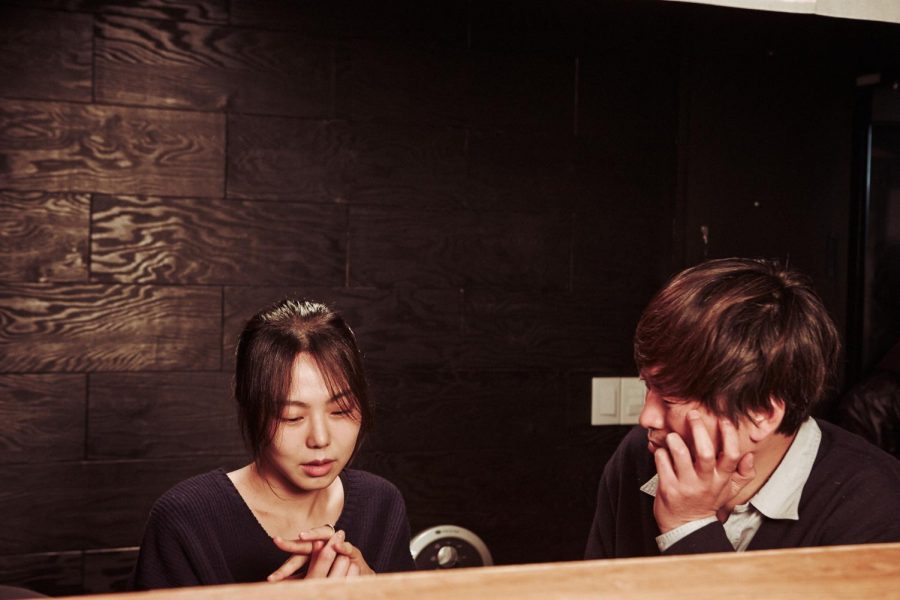Theme of the Month: Chance Encounters
October 10, 2018
“Right Now, Wrong Then”
As the film begins and sports the title “Right Then, Wrong Now,” the audience might do a double-take and wonder if they somehow walked into the wrong theater, but that’s not the case.
Two strangers, film director Cheon-soo and painter Hee-jeong, meet by coincidence and, on a whim, decide to go out for drinks together. Their encounter goes well at first, with the former praising Hee-jeong’s art and them mildly enjoying each other’s company.
The night quickly turns rotten, however, when Cheon-soo is revealed to have a “reputation” and that his compliments were most likely lies. This leaves both of them drunk and bitter. In the end, Hee-jeong returns home and is scolded by her mother for being intoxicated; Cheon-soo, still reeling from a hangover, fumbles his movie premiere the following day. Nobody is happy.
And then, the film begins again.
Now with the correct title “Right Now, Wrong Then,” the film presents an emotionally raw but ultimately happier version of the fateful encounter. Cheon-soo offers some harsh criticism of Hee-jeong’s paintings, although the truth seems to be much more relieving for the both of them; this is one of the several changes made to the script that communicate to the viewer what went wrong in the first scenario.
To watch “Right Now, Wrong Then” is to watch two versions of the same event. Both of these are equally likely, although what truly matters in the film is the second option: even if it hurts, choosing the honest path is always the better decision.
“Blind Chance”
Intended to be released in 1981, Krzysztof Kieślowski’s “Blind Chance” was seized by Polish authorities and remained out of public hands until 1987. Even then, one portion of the film has remained unobtainable and is likely lost forever.
The government’s reaction to the film wasn’t exactly unexpected. “Blind Chance” is presented in three segments, all of which hinge upon whether or not a man named Witek boards – or does not board – a train. In the second scenario, Witek misses the train and has a violent fight with police officers, an encounter that inspires him to join the anti-Communist resistance. The first situation shows Witek take a similarly extreme approach to politics. An encounter with an old friend leads to him becoming an avid Party member, leading to many of his anti-Communist friends distancing themselves from him.
The third scenario, however, plays out in a radically different way. Unlike the others, this path has Witek abstaining from politics and finding happiness. He marries an old flame, has two children, and is offered a trip to Libya. As the plane takes off, it abruptly explodes.
The message of “Blind Chance” is very clear: always attempting to be polite and stand the middle ground will never work. As a political statement, Kieślowski’s point of view couldn’t be more black-and-white. You either pick a side or die.
“Baccano!”
“Baccano!,” the Italian word for “ruckus,” is a 2007 animated television series set in Prohibition-era America, with period-accurate gangsters, mafia families, and bootleggers aplenty. The show follows a wide ensemble of different people and describes itself as “not having a main character,” with the final amount of leads totaling to around 20.
Some of the more notable characters include lovable idiot thieves Isaac and Miria, the eccentric murderer Ladd Russo, and a group of closeted immortals whose tale started in 1711. Other plot lines take place primarily in the 1930s, with most of the action taking place on The Flying Pussyfoot, a train that may or may not have a cult, gang, and some immortals on board.
The Flying Pussyfoot subplot is easily the most interesting story in the series. By the third episode, the audience will have already heard of a train-dwelling monster called the “Rail Tracer,” the discovery of an elixir that can bring eternal life, and a newspaper that acts as an information broker.
And that’s only 20 percent of the show.
The show’s marketing information probably does a better job at describing it than I ever could. “Paths don’t cross in this story, they collide,” says series distributor FUNimation. “Every Dick and Jane is playing the lead and it’s gonna be a bumpy ride.”



